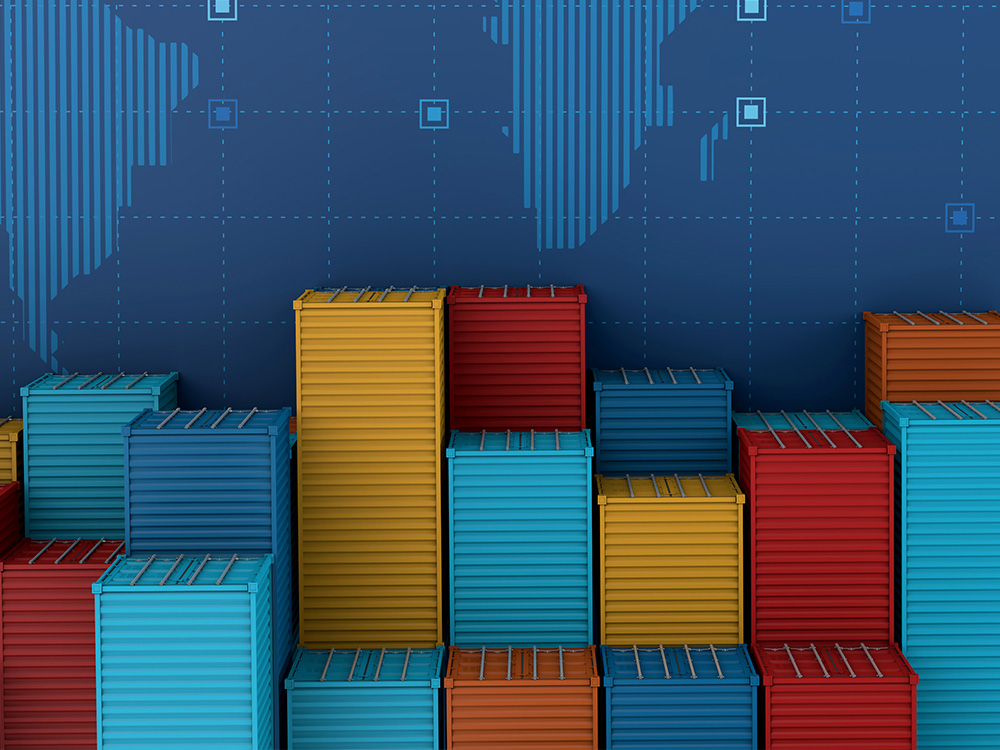Insights > Uncategorized
Uncategorized
International Trade Newsletter – January, 2024
February 22nd, 2024

The International Trade and Customs Newsletter aims to provide information about recent news, trends and government guidelines in Brazil and abroad in connection with international trade, market access, trade remedies, import tariffs and competitiveness. This material is intended for informational purposes and should not be used for decision-making. Specific legal advice can be provided by our lawyers.
Enjoy reading!
International Trade Team
CNDI introduces Nova Indústria Brasil – Action Plan for a New Industrial Policy
On January 22, 2024, the Brazilian National Council for Industrial Development (“CNDI”) introduced the Nova Indústria Brasil (New Brazilian Industry, “NIB”), a new industrial policy that is expected to be implemented in the next 10 years by the Brazilian Federal Government.1
International trade is expressly highlighted as an instrument for implementing the NIB. Among the measures mentioned, the following can be highlighted:
(i) creating rules to encourage foreign capital to develop domestic capacities;
(ii) improving public trade policies through the Brazilian National Export Culture Policy (“PNCE”); and
(iii) reducing bureaucracy and facilitating international trade.
The plan is structured into missions and provides for the improvement of the business environment, a set of measures to increase competitiveness and the opening up of new markets for Brazilian products and services abroad. The six missions announced by the CNDI are:
Mission 1: Sustainable and digital agro-industrial chains to ensure food, nutrition and energy security – manufacturing equipment used for precision agriculture and large-scale production, as well as expanding and optimizing family farming capacity towards producing healthy food.
Main International Trade instruments:
(i) Streamlining port fees, given the excess of port fees levied on export activities, leading to excessive costs for international trade; and
(ii) Adopting collaborative practices between equivalent foreign regulatory authorities, such as the Southern Common Market (“MERCOSUR”) and the World Trade Organization (WTO).
Mission 2: A resilient health industrial economic-industrial complex to reduce the Brazilian Unified Health System’s (SUS) vulnerabilities and expand general access to healthcare – expanding Brazil’s production share from 42% to 70% of the domestic needs for medications, vaccines, medical equipment and devices, among others, thus strengthening SUS and expanding the population’s access to health services.
Main International Trade instruments:
(i) Reforming the “Law of Good” (Lei do Bem), improvements to the legal framework needed to broaden the scope of benefited companies and maximize the positive effect of this policy.
Mission 3: Sustainable infrastructure, sanitation, housing and mobility for productive integration and well-being in cities – increasing 25% of Brazil’s production share in the sustainable public transport industry chain.
Main International Trade instruments:
(i) Reducing bureaucracy in the process of establishing Inland Customs Stations (“EADI”), which are important logistics centers;
(ii) Enabling the resumption of service exports, through a regulatory framework for new service export operations; and
(iii) Official state government support for short-term export operations.
Mission 4: Industry’s digital transformation to enhance productivity – digitizing 90% of Brazilian companies in the industrial sector and triple domestic production in new technology segments.
Main International Trade instruments:
(i) Digitization of the industrial sector and building connectivity through a program to support productivity and digital transformation for micro, small and medium-sized companies (“MSMEs”);
(ii) Actions to develop the semiconductor sector, extending deadlines and establishing new incentives; and
(iii) Technological upgrading of mature industrial regions to renew Brazil’s industrial park.
Mission 5: Bioeconomy, decarbonization, energy transition and energy security to preserve resources for future generations – boosting the industry’s use of biodiversity and reducing the Brazilian national industry carbon footprint – which accounts for 107 million tons of CO2 emissions per trillion dollars produced – by 30%.
Main International Trade instruments:
(i) Certification of products and compliance with sustainability requirements, energy efficiency and environmental standards based on the best international practices, adapted to Brazilian specific characteristics, as necessary; and
(ii) Increasing the competitive advantage of the Brazilian industry, through tax benefits on the purchase of the main inputs for the first and second generation petrochemical industries.
Mission 6: Key technologies for national sovereignty and defense – producing 50% of key technologies aimed at strengthening national sovereignty.
Main International Trade instruments:
(i) A government-to-government purchasing instrument to enable the sale of Defense Industrial Base products to other countries;
(ii) Implementing the new Official Export Support System; and
(iii) Contributing to the consolidation of the defense industry’s production chains.
Brazil adopts new MERCOSUR regulations for special import regimes and rules of origin
On January 23, 2024, Decrees No. 11,896 and No. 11,897 were published, providing for the new MERCOSUR trade regulations among countries that integrate the bloc.
While Decree No. 11,896 authorizes the use of drawback and temporary admission regimes for intra-zone trade, Decree No. 11,897 extends, until December 31, 2026, the terms of special rules of origin applicable to Paraguay, Uruguay and Argentina.
The new regulations state that Paraguay and Uruguay can levy, by December 31, 2030 – provided that these countries do not use the drawback and temporary admission regimes –, a 0% rate on the import of agricultural inputs, according to the list of tariff items to be notified to the MERCOSUR Trade Commission (“CCM”).
In addition, Paraguay’s deadline to implement the special regime was extended until December 31, 2030, with a 2% rate on raw material imports.
Finally, the extended term of the special rules of origin allows Paraguay to use inputs from third countries, provided that the cost, insurance and freight (CIF) rate does not exceed 60% of the free on board (FOB) rate of locally manufactured products. As for Uruguay, this rate cannot exceed 50% until December 31, 2026, and 45% as of January 01, 2027. The same rates and deadlines apply to exports from Argentina to Uruguay.
1 https://www.gov.br/mdic/pt-br/composicao/se/cndi/plano-de-acao/nova-industria-brasil-plano-de-acao.pdf
Related Partners
Related Lawyers
Giulia Tavares Murta
Victor Novis
Vitor Fernando de Campos Leite
Vitória Linhares Malucelli
Related Areas
International Trade and Customs

















